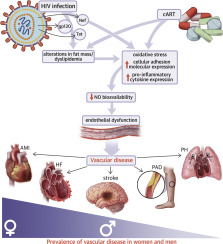Gender equality and women's empowerment play a vital role in achieving the Sustainable Development Goals (SDGs) outlined by the United Nations. Acknowledging the significance of SDG 5, which explicitly targets gender equality and the empowerment of all women and girls, it's worth noting that these elements are fundamentally tied to all 17 goals. Each goal, whether it pertains to poverty eradication, quality education, or climate action, is directly or indirectly affected by gender dynamics. Gender inequality inhibits economic growth (SDG 8) by depriving economies of the full potential of half its population, thereby exacerbating poverty (SDG 1) and hunger (SDG 2). Additionally, gender-based discrimination can limit access to quality education (SDG 4) and decent work (SDG 8) for women and girls, further perpetuating inequality. In health matters, gender roles and stereotypes often result in disparities in healthcare access and outcomes (SDG 3). With respect to environmental sustainability (SDGs 13, 14, and 15), women, particularly those in rural areas, bear the brunt of climate change impacts, but they also hold unique knowledge and skills crucial for mitigation and adaptation strategies. Likewise, women's underrepresentation in decision-making roles limits their influence on peace and justice (SDG 16) and partnerships for goals (SDG 17). Thus, achieving gender equality isn't only about justice for women and girls, but also about progress on every SDG. Women's empowerment creates a multiplier effect that boosts economic growth and promotes sustainable development, thereby setting a direct path towards achieving the SDGs. Encouragingly, concerted efforts worldwide are recognizing and amplifying women's roles in society, placing gender equality and women's empowerment at the heart of the SDGs. Such advancements signify a positive stride towards a balanced and equitable world.
Violence against women (VAW) is a violation of human rights rooted in gendered social structures and a pervasive problem worldwide. It cuts across age, socioeconomic, educational, and geographic boundaries, affecting all societies. Women and girls are disproportionately impacted by gender-based violence, which causes immense harm, suffering, loss of dignity, along with immediate and long-lasting medical and psychological damage. It also places a heavy burden on societies and economies.
Across cultures, women prefer participation in nonviolent opposition to government rather than violence. Civil resistance entails intentionally nonviolent acts such as demonstrations, strikes, and nonparticipation to pressure government to respond to demands.
Violence against sexual minorities is a significant social problem. On a global level, its primary manifestation is in state-sanctioned violence by law enforcement officials. In some countries, extralegal violence is also widespread. The landscape of victimization has changed dramatically as sexual minorities have gained greater visibility and acceptance. This chapter provides a historical and cultural overview of legal and extralegal violence against sexual minorities around the globe.

